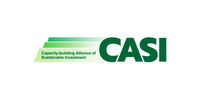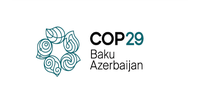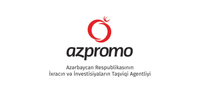November 15, 2024
At the upcoming COP29, financing mechanisms for sustainable development will take center stage, with a focus on green finance to support developing nations. For Azerbaijan, traditionally reliant on oil and gas exports, this shift presents a pivotal opportunity. The country is navigating the challenges of climate change by diversifying its economy and identifying new growth avenues.
The World Bank has emphasized that accelerating investments in decarbonization is in line with Azerbaijan's strategic interests. The nation has set ambitious goals to cut greenhouse gas (GHG) emissions by 40% by 2035 and 70% by 2050, relative to a 2030 baseline. To meet these targets, Azerbaijan anticipates a financial outlay of $4.4 billion, with a significant portion expected to come from green financing initiatives led by the private sector. The Central Bank of Azerbaijan (CBA) has initiated the Sustainable Finance Action Plan (2022-2025), which includes comprehensive measures such as enhancing skills and building capacity in sustainable finance.
The forum, Co-host by the Capacity-building Alliance of Sustainable Investment (CASI), the Institute of Finance and Sustainability (IFS), and the Azerbaijan State University of Economics (UNEC), enjoys support from the Azerbaijan COP29 Presidency, the COP29 High-level Champion for Climate Action, and the Export and Investment Promotion Agency of the Republic of Azerbaijan – AZPROMO. It is designed to enhance the understanding of green finance among policymakers, regulators, financial institutions, and stakeholders from Azerbaijan, Central and West Asia, and Eastern Europe. The forum will serve as a platform for exchanging ideas on integrating green finance into local and regional markets, addressing unique challenges, and exploring growth opportunities.
Through this forum, Azerbaijan aims to affirm its commitment to climate action and highlight the role of finance in combating global climate change. It seeks to align the local and regional financial sectors with the global sustainability agenda by featuring high-level speakers from government, regulatory bodies, financial institutions, and corporations. The event will emphasize the critical nature of climate actions, the vital role of green finance, and the effectiveness of public-private partnerships in securing climate finance.
The forum is expected to draw 200 participants from Azerbaijan and surrounding regions, offering them a chance to engage with world-renowned experts on issues relevant to their specific contexts. Registration for the forum is free, although participants are responsible for their own travel and accommodation expenses.
Agenda
09
00
-
09
30
09
30
-
09
50
Welcome Remarks
• Ma Jun, Chairman of Capacity-building Alliance of Sustainable Investment (CASI), President of Institute of Finance and Sustainability (IFS)
• Huseyn Hasanov, Vice Rector on International Relationships, Azerbaijan State University of Economics (UNEC)
09
50
-
10
20
Keynote Speeches
• Erik Solheim, former Executive Director of UNEP and former Minister of the Environment and International Development in Norway
• Shahin Mahmudzade, Executive Director, Central Bank of Azerbaijan
• David Atkin, CEO, UNPRI
10
25
-
11
25
Session 1: Policy Framework for Sustainable Finance
In Azerbaijan and Central Asia, there's a burgeoning movement towards establishing and promoting a "Sustainable Finance Taxonomy." For example, Kazakhstan has seen the Astana International Financial Centre (AIFC) spearhead the design of its green finance system since its inception in 2018, including the Green Bonds Rules and the new Ecological Code of Kazakhstan effective from July 2021 which encompasses a Green Taxonomy. Additionally, Kyrgyzstan signed a green finance cooperation agreement with the AIFC in 2022, aiming to develop a green project taxonomy and ESG standards, with plans to issue green bonds on the Kyrgyz Stock Exchange. This session will shed light on lessons and experience for further scaling up of sustainable finance in the region.
Moderator:
• Ma Jun, Chairman of Capacity-building Alliance of Sustainable Investment (CASI), President of Institute of Finance and Sustainability
Panelists:
• Sean Carmody, Executive Director, Policy and Advice, APRA
• Sean Kidney, CEO, Climate Bonds Initiative
• Assel Nurakhmetova, Director of Carbon Platform, Acting Director of Sustainable Development, AIFC Authority
• Sherry Madera, CEO, CDP
• Simon Thompson, Managing Director, Global Capacity Building Coalition
11
25
-
12
25
Session 2: Sustainability Disclosure - Challenges, Benefits and Solutions
One year after the finalization of the ISSB Standards, including IFRS S1 and S2, there have been lots of progresses in sustainability disclosure. However, there are also voices about the challenges and barriers in implementing these standards. Some regulators and investors are concerned with the interoperability among different standards, while some are also less aware of potential benefits of enhancing sustainability disclosure in the capital markets. The G20 has also looking into this topic for many years, specifically focusing on SMEs and EMDEs. With this background, the panel delves into various aspects of sustainability disclosure, focusing on challenges, benefits and solutions associated with disclosure, emphasizing its role in driving responsible business practices and fostering sustainable development.
Moderator:
• Zhang Rong, Global Coordinator, IFC-supported SBFN
Panelists:
• Dina Zhanadil, Managing Director, Development Bank of Kazakhstan
• Mardi McBrien, Chief of Strategic Affairs & Capacity Building, IFRS
• Marcus Pratsch, Senior Vice President, Head of Sustainable Bonds & Finance, DZ Bank
• Bahruz Naghiyev, Deputy CEO, PASHA Bank
12
25
-
12
40
12
40
-
13
40
Session 3: Financing for Low-GHG Transition
As oil and gas exporters, Azerbaijan and many Central Asian and Eastern European countries are facing natural risks brought about by climate change and are in need of economic diversification and new growth drivers. For example, Azerbaijan has set national targets to reduce greenhouse gas emissions by 40% by 2035 based on 2030 levels, and by 70% by 2050. Achieving these goals requires an estimated investment of $4.4 billion, a large portion of which should come from commercial and private sector financing. Blended finance plays a pivotal role in driving the decarbonization of key infrastructure projects, such as those in energy, transport and buildings. By combining public and private sector funding, blended finance mechanisms can leverage resources more effectively, unlocking investments for sustainable infrastructure development.
Moderator:
• Christian Déséglise, Managing Director, Group Head of Sustainable Infrastructure and Innovation, HSBC
Panelists:
• Jang Ping Thia, Lead Economist / Manager of Economics Department, AIIB
• Patrick Yeung, Associate Director, Climate Action Platform of AVPN
• Kamran Khan, Head of ESG Asia Pacific, Deutsch Bank
• Dyogo Oliveira, President of Brazilian Federation of Insurance
• Antonina Scheer, Policy Fellow and Research Project Manager, Transition Pathway Initiative Centre
13
40
-
14
40
Session 4: Carbon Pricing and Carbon Trading
Carbon pricing and carbon trading are key mechanisms in global efforts to mitigate climate change by reducing greenhouse gas emissions. This mechanism creates financial incentives for emissions reductions while providing flexibility in how companies meet their targets. Both approaches are designed to internalize the environmental cost of carbon emissions and promote investment in clean technologies. However, debates persist around fairness and the effectiveness of implementation of the carbon market, integrity of carbon credits, as well as how these mechanisms can align with global climate goals like the Paris Agreement, while many economies have already made significant progresses. This session invites speakers from around the world to share their perspectives on how carbon pricing and carbon trading can be better designed and implemented to fulfill its goal of carbon emission reductions.
Moderator:
• David von Eiff, Director, Global Industry Standards, CFA Institute
Panelists:
• Ge Xing’An, Vice President, Susallwave
• Stephen Nolan, Managing Director and Head of Secretariat UNDP FC4S
• Hywel George, Director of Investments, Old Mutual Investment Group
• Jessica Skedd, Green and Sustainable Finance Policy Manager, TheCityUK
14
40
-
15
10
Session 5: Role of G20, International Organizations and Sovereign Wealth Funds
Moderator:
• Ma Jun, Chairman of Capacity-building Alliance of Sustainable Investment (CASI), President of Institute of Finance and Sustainability
Panelists:
• Bo LI, Deputy Managing Director, International Monetary Fund
• Wang Xin, Director General, Research Bureau, People’s Bank of China
• Zhu Jun, Chairwoman, Silk Road Fund
• Shanthessa Ragavaloo, Economic Policy Analyst, International Economic Relations and Policy Department, Reserve Bank of South Africa












